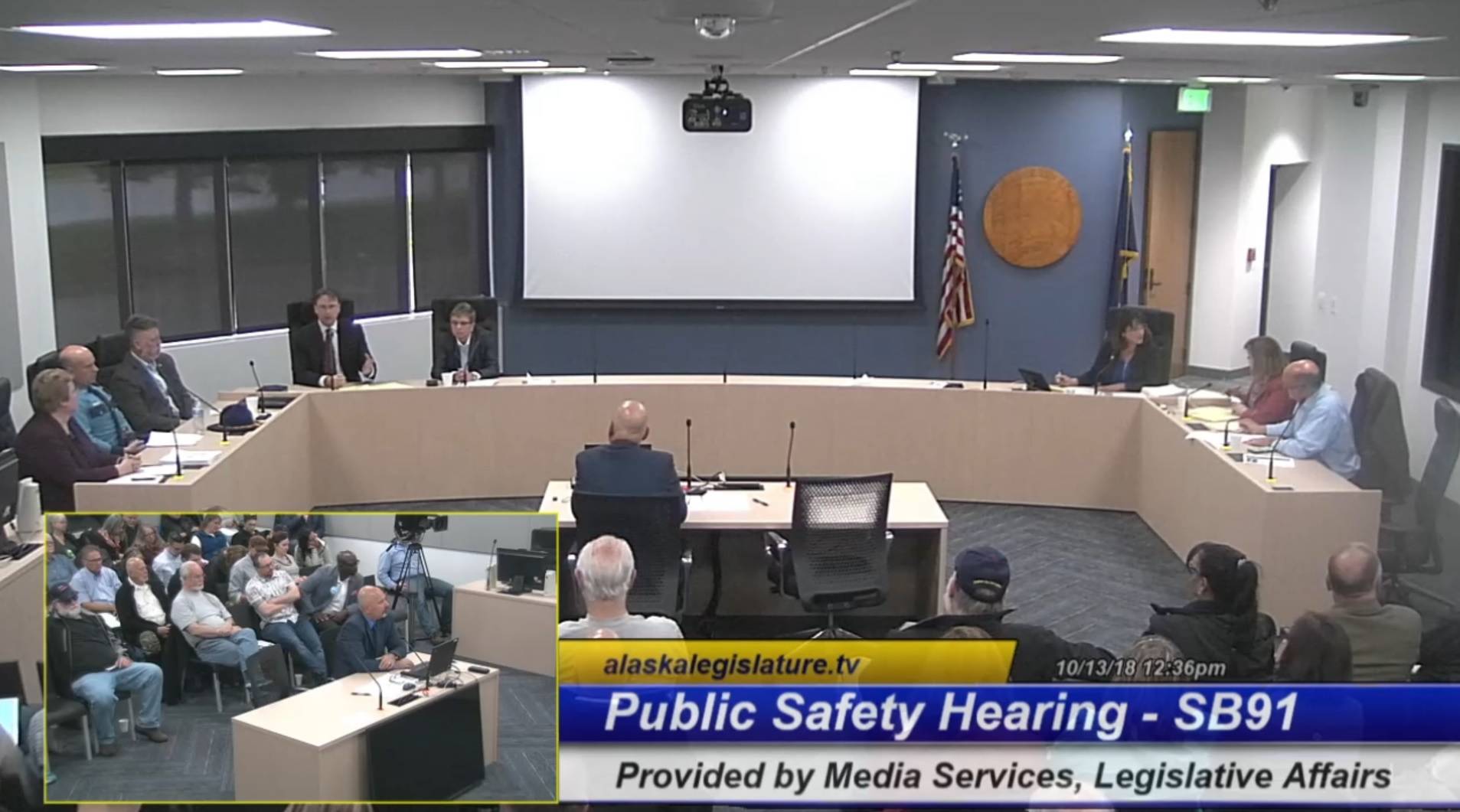Lawmakers and Alaskans frustrated by rising crime rates gathered in Anchorage Saturday for an extended forum to vent their frustrations with Alaska’s criminal justice system.
The event, organized by Rep. Lora Reinbold, R-Eagle River, was co-hosted by a swath of incumbent lawmakers seeking re-election to the Alaska Legislature.
Reinbold herself is expected to win a seat in the Alaska Senate and has been a stalwart opponent of criminal justice reform efforts that began with Senate Bill 91 in 2016. (The measure wasn’t fully implemented until Jan. 1 this year.)
“I believe the state is failing in many ways, and it’s of deep concern to me,” she told an audience that filled a meeting room at the Anchorage Legislative Information Office.
While Reinbold attempted to keep the meeting focused on technical problems with Senate Bill 91 in particular, invited testifiers had different ideas and attempted to point out that Alaska’s crime problems are also due to budget cuts that have reduced the number of state prosecutors and made it difficult to fill vacant positions in the Alaska State Troopers.
“It’s a tough environment for law enforcement in rural Alaska,” said Major Bryan Barlow of the Alaska State Troopers.
John Skidmore, head of the criminal division of the Alaska Department of Law, said no single bill controls criminal justice in Alaska.
“We’re always looking at things, we’re always trying to improve things,” he said, and if Alaskans are unhappy, “It’s not just a ‘here’s one simple thing, and everything’s fixed.’”
Skidmore told the audience that SB 91 has been revised several times by the Legislature and that he expects further revisions next year.
Among those revisions, he expects lawmakers to consider making simple drug possession a felony, rather than a misdemeanor as was done under Senate Bill 91. Changes to the definition of a sex offense are also expected; a recent furor over an Anchorage plea deal has led Gov. Bill Walker and lawmakers to call for revisions.
Under questioning, Skidmore said that furor was generated by issues with state law, not anything done by the prosecutor or judge.
“That was the problem with the Scneider case: What does the law allow?” he said.
Reinbold herself said she will seek tougher penalties for C felonies, the lowest-level felony offenses.
“I’m going to fight for a two-year minimum for C felonies,” she said.
After nearly four hours of invited testimony, the forum opened a period of public testimony allowing Alaskans to talk about crimes they have seen or experienced.
There have been more of those lately. According to figures in this year’s Uniform Crime Report, arson is the only crime that dropped in Alaska between 2016 and 2017.
Before the microphone opened, attorney Rob Corbisier was invited to testify about his own experience. Corbisier, a former state prosecutor now working in private practice, was shot at while attempting to deliver a tresspass notice to a driver loitering in a car in his neighborhood.
He’s now teaching concealed-carry classes, and demand has exploded.
“I’m teaching one a month,” he said. “People are scared.”

